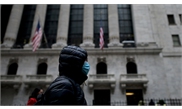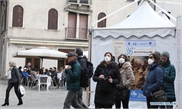Anti-Chinese discriminations amid COVID-19 epidemic not mainstream, experts call for understating
Resisting racism
○ Discriminations in some countries against Chinese people have occurred since the COVID-19 outbreak
○ But most overseas Chinese people say they have not met discriminations, which go against the mainstream of the public voice
○ Chinese experts warn that some forces might use the epidemic to marginalize China at a time that calls for unity and cooperation of different countries
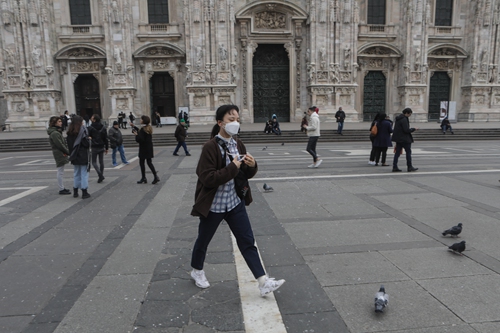
Discriminations against Chinese people have occurred in some countries as the COVID-19 virus spreads across the world. But officials and Chinese experts noted those incidents do not represent mainstream voices and called for reasonable understanding toward the epidemic.
As China gets closer to controlling COVID-19, the virus has hit Japan, South Korea, Italy and Iran badly in recent days.
Meanwhile, some overseas Chinese have expressed discontent over increased discriminations. Some media even hypes that an anti-Chinese atmosphere is engulfing some countries in wake of the virus.
But the Global Times found that the discrimination against Chinese during the COVID-19 outbreak is quite uncommon and far from the mainstream of the public society.
The World Health Organization has acknowledged China's efforts and achievements in fighting against the epidemic, and the decreasing number of new cases indicates the epidemic has been controlled in China.
All countries should be seriously aware of the potential for global spread of COVID-19, and join hands with China to combat the disease, said Li Haidong, a professor at the China Foreign Affairs University.
Some exaggerated Western media reports led to panic. In addition, some anti-China forces in Western countries use the epidemic to marginalize the nation, causing some foreigners to discriminate against Chinese people, Li explained.
Chinese are not virus
Shelley Jiang, an ethnic Chinese lawyer from the Dusseldorf-based Dr. Kai Rohs law firm, told the Global Times that a Chinese woman consulted her for legal assistance because she was fired by her company due to discriminations over the virus.
With more similar cases, Jiang established a WeChat group in which more than 200 overseas Chinese joined to share their worries and anger about being discriminated in daily life due to the coronavirus outbreak.
Germany so far has 16 confirmed cases of COVID-19 within its borders, reports said.
One group member named Anne said her daughter refused to go to kindergarten as she was being racially profiled by her classmates, and that she had no friends at school.
Another member named Tim shared a story of being outside with his dog when a teenager on his bike saw him from far away. The boy quickly stopped his bike and covered his nose and mouth, said Tim. He said he then came to the boy and asked why he did this, to which the boy responded "I not want to get infected."
"I'm a Chinese but it does not mean that I'm a virus," Tim shouted.
Some Chinese students were kicked out by their German landlords for the fear of virus infection.
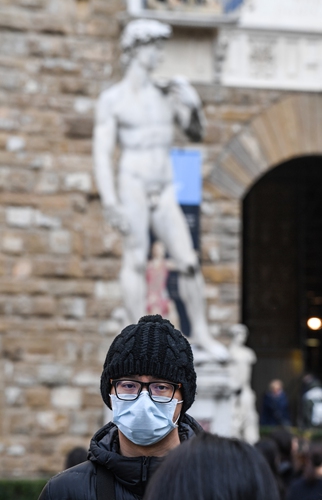
In Italy, a video that went viral on Tuesday among Chinese people showed that Francesco Facchinetti, a famous DJ in Italy, stopped two teenagers insulting a supposedly "Chinese elder man" in a supermarket in Mariano, a city in northern Italy on Monday.
Facchinetti saw the teenagers hitting the man. He divided them and slapped the assailants out of anger.
"I have just witnessed the most gruesome scene in my life: Two boys who rail against a Chinese elder," Facchinetti wrote on his Twitter.
In a video Facchinetti posted on Twitter, the man shouted in Italian that he is Filipino, not Chinese.
A total of 322 cases have been confirmed in Italy with 10 deaths, the most in Europe. The country has locked down at least 11 towns.
Zhang, a 29-year-old Chinese woman working in Los Angeles, the US, told the Global Times that a Mexican from a driving car shouted "Hello, virus!" at her friend when she walked along the street.
Zhang, who is now trying to work and live in the Chinese community, said she is afraid of being discriminated against though no incident has happened yet.
Not mainstream
Among the Chinese people overseas reached by the Global Times reached, only a few said they had experienced discriminations.
A 28-year-old Chinese man from Hubei Province surnamed Gao, who is living in Okinawa, Japan, told the Global Times that he doesn't come across any discriminations in Japan, where people are just worried about the outbreak itself.
When Gao goes to a restaurant, he said he will hear people saying "that man is Chinese" behind his back occasionally.
"But I'm not offended or discriminated against. People are just worried about the outbreak which I can understand," Gao said.
He said he is eager to return China as Japan's ability to detect COVID-19 is limited.
A lot of people with mild symptoms who have not contacted with people from abroad or those who have been on cruise lines, cannot obtain timely detection. So the possibility of community diffusion in the future is still very high, Gao said.
Gao has been keeping a close eye on the outbreak in Japan recently, planning to fly back to China if the number of infected people quickly increases.
However, Gao is from Central China's Hubei Province, the epicenter of COVID-19, which makes it uneasy to go back to his hometown.
He has asked whether he could fly back to Beijing, Shanghai or other cities and living with friends. However, the closed management of communities in China makes his return trip difficult.
Liu Jin (pseudonym), a Chinese woman who is working in Madrid, Spain, told the Global Times that some biased and exaggerated reports of local media may mislead local people to ignore the efforts of China to fight against COVID-19. When she travelled to Barcelona last week, some people were staring at her mask in the subway. She said she then took off her mask under psychological pressure.
There are three confirmed cases in mainland Spain as of press time, all of whom are not Spanish. Liu finds the virus has not caused too much public concern yet.
Mu Rong, a Chinese working in Paris, France said that none of Chinese people he knows has encountered any discriminations so far. He said that if one wears a mask in Paris, other people would think he is sick, so it is better to act like most other Parisians.
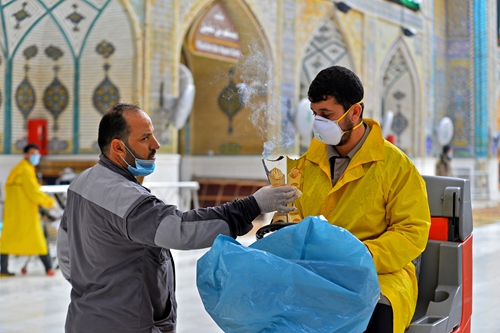
Several Chinese citizens in the Netherlands also told the Global Times that there has not been any virus-related discrimination against them.
The Global Times found out that most Chinese people living Australia are still living a normal life, except some having been refused by Uber drivers if they wear mask. The Uber drivers just drove pass them and ignored their messages if they were seen wearing masks, some said.
Li Haidong, the professor, told the Global Times that discrimination against Chinese indeed does exist, however, there are only a few cases and it is not part of the global mainstream.
He calls on all countries to remain rational and cooperate fully in the fight against the epidemic.
COVID-19 has recently appeared in a number of countries and the treatment is still unclear. It is understandable that many foreigners are panicking all over the world, he said.
Official concerns
An official from the Chinese Embassy in Japan told the Global Times that the embassy is not concerned about any offense or discrimination against Chinese in Japan, where the mainstream society is friendly to China.
Since the outbreak, Japan has taken the initiative to donate lots of protective materials to China. Some have said that both the Japanese government and private sectors are fully supporting China's fight against the outbreak of COVID-19.
Since coronavirus cases have been found in Iran, some posts circulating on social media said Chinese people in Iran have met some discriminations.
"After the novel coronavirus outbreak broke out in China, the Iranian people and government have showed their sympathy and offered their support to China in various ways," said a statement sent to the Global Times by the Iranian Embassy in China.
In response to the question whether some Iranians discriminate against Chinese people due to the coronavirus, the Iranian embassy said that Iran and China have proved time and again their long friendship is unshakable.
"Iran and China are standing together on the main fronts and sharing a lot on the global stage and the Chinese can be rest assured about Iran's full support, just as before," it said.
The Chinese Embassy in Italy has noticed such cases of discriminations and posted notices, Gong Qing, an official at the embassy's publicity department, told the Global Times on Tuesday. "We are working with local authorities to safeguard the benefits of Chinese people," Gong said.
"Discrimination is not mainstream among Italian people," said Li Junhua, Chinese Ambassador to Italy, during a TV interview with RAI 3 on February 20.
"Discrimination comes from panic. During the epidemic, confidence and reason are key points," he said. "I believe the law-enforcement department will make efforts to safeguard the legal rights of the Chinese communities."
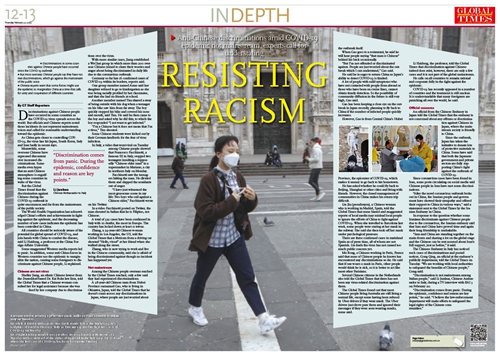
○ But most overseas Chinese people say they have not met discriminations, which go against the mainstream of the public voice
○ Chinese experts warn that some forces might use the epidemic to marginalize China at a time that calls for unity and cooperation of different countries

A woman tourist, wearing a protective mask, walks on Piazza Duomo in Milan, Italy on Tuesday. Photo: AFP
Discriminations against Chinese people have occurred in some countries as the COVID-19 virus spreads across the world. But officials and Chinese experts noted those incidents do not represent mainstream voices and called for reasonable understanding toward the epidemic.
As China gets closer to controlling COVID-19, the virus has hit Japan, South Korea, Italy and Iran badly in recent days.
Meanwhile, some overseas Chinese have expressed discontent over increased discriminations. Some media even hypes that an anti-Chinese atmosphere is engulfing some countries in wake of the virus.
But the Global Times found that the discrimination against Chinese during the COVID-19 outbreak is quite uncommon and far from the mainstream of the public society.
The World Health Organization has acknowledged China's efforts and achievements in fighting against the epidemic, and the decreasing number of new cases indicates the epidemic has been controlled in China.
All countries should be seriously aware of the potential for global spread of COVID-19, and join hands with China to combat the disease, said Li Haidong, a professor at the China Foreign Affairs University.
Some exaggerated Western media reports led to panic. In addition, some anti-China forces in Western countries use the epidemic to marginalize the nation, causing some foreigners to discriminate against Chinese people, Li explained.
Chinese are not virus
Shelley Jiang, an ethnic Chinese lawyer from the Dusseldorf-based Dr. Kai Rohs law firm, told the Global Times that a Chinese woman consulted her for legal assistance because she was fired by her company due to discriminations over the virus.
With more similar cases, Jiang established a WeChat group in which more than 200 overseas Chinese joined to share their worries and anger about being discriminated in daily life due to the coronavirus outbreak.
Germany so far has 16 confirmed cases of COVID-19 within its borders, reports said.
One group member named Anne said her daughter refused to go to kindergarten as she was being racially profiled by her classmates, and that she had no friends at school.
Another member named Tim shared a story of being outside with his dog when a teenager on his bike saw him from far away. The boy quickly stopped his bike and covered his nose and mouth, said Tim. He said he then came to the boy and asked why he did this, to which the boy responded "I not want to get infected."
"I'm a Chinese but it does not mean that I'm a virus," Tim shouted.
Some Chinese students were kicked out by their German landlords for the fear of virus infection.

A tourist with a protective mask stands before the Michelangelo's sculpture of David in Florence, Italy as Tuscany reported its first two cases of COVID-19 on Tuesday. Photo: AFP
In Italy, a video that went viral on Tuesday among Chinese people showed that Francesco Facchinetti, a famous DJ in Italy, stopped two teenagers insulting a supposedly "Chinese elder man" in a supermarket in Mariano, a city in northern Italy on Monday.
Facchinetti saw the teenagers hitting the man. He divided them and slapped the assailants out of anger.
"I have just witnessed the most gruesome scene in my life: Two boys who rail against a Chinese elder," Facchinetti wrote on his Twitter.
In a video Facchinetti posted on Twitter, the man shouted in Italian that he is Filipino, not Chinese.
A total of 322 cases have been confirmed in Italy with 10 deaths, the most in Europe. The country has locked down at least 11 towns.
Zhang, a 29-year-old Chinese woman working in Los Angeles, the US, told the Global Times that a Mexican from a driving car shouted "Hello, virus!" at her friend when she walked along the street.
Zhang, who is now trying to work and live in the Chinese community, said she is afraid of being discriminated against though no incident has happened yet.
Not mainstream
Among the Chinese people overseas reached by the Global Times reached, only a few said they had experienced discriminations.
A 28-year-old Chinese man from Hubei Province surnamed Gao, who is living in Okinawa, Japan, told the Global Times that he doesn't come across any discriminations in Japan, where people are just worried about the outbreak itself.
When Gao goes to a restaurant, he said he will hear people saying "that man is Chinese" behind his back occasionally.
"But I'm not offended or discriminated against. People are just worried about the outbreak which I can understand," Gao said.
He said he is eager to return China as Japan's ability to detect COVID-19 is limited.
A lot of people with mild symptoms who have not contacted with people from abroad or those who have been on cruise lines, cannot obtain timely detection. So the possibility of community diffusion in the future is still very high, Gao said.
Gao has been keeping a close eye on the outbreak in Japan recently, planning to fly back to China if the number of infected people quickly increases.
However, Gao is from Central China's Hubei Province, the epicenter of COVID-19, which makes it uneasy to go back to his hometown.
He has asked whether he could fly back to Beijing, Shanghai or other cities and living with friends. However, the closed management of communities in China makes his return trip difficult.
Liu Jin (pseudonym), a Chinese woman who is working in Madrid, Spain, told the Global Times that some biased and exaggerated reports of local media may mislead local people to ignore the efforts of China to fight against COVID-19. When she travelled to Barcelona last week, some people were staring at her mask in the subway. She said she then took off her mask under psychological pressure.
There are three confirmed cases in mainland Spain as of press time, all of whom are not Spanish. Liu finds the virus has not caused too much public concern yet.
Mu Rong, a Chinese working in Paris, France said that none of Chinese people he knows has encountered any discriminations so far. He said that if one wears a mask in Paris, other people would think he is sick, so it is better to act like most other Parisians.

An Iraqi man blesses a worker, wearing a mask, with incense on Tuesday in the courtyard of the shrine of Imam Ali in the holy Iraqi city of Najaf, where the first case of COVID-19 has been documented in Iraq. Photo: AFP
Several Chinese citizens in the Netherlands also told the Global Times that there has not been any virus-related discrimination against them.
The Global Times found out that most Chinese people living Australia are still living a normal life, except some having been refused by Uber drivers if they wear mask. The Uber drivers just drove pass them and ignored their messages if they were seen wearing masks, some said.
Li Haidong, the professor, told the Global Times that discrimination against Chinese indeed does exist, however, there are only a few cases and it is not part of the global mainstream.
He calls on all countries to remain rational and cooperate fully in the fight against the epidemic.
COVID-19 has recently appeared in a number of countries and the treatment is still unclear. It is understandable that many foreigners are panicking all over the world, he said.
Official concerns
An official from the Chinese Embassy in Japan told the Global Times that the embassy is not concerned about any offense or discrimination against Chinese in Japan, where the mainstream society is friendly to China.
Since the outbreak, Japan has taken the initiative to donate lots of protective materials to China. Some have said that both the Japanese government and private sectors are fully supporting China's fight against the outbreak of COVID-19.
Since coronavirus cases have been found in Iran, some posts circulating on social media said Chinese people in Iran have met some discriminations.
"After the novel coronavirus outbreak broke out in China, the Iranian people and government have showed their sympathy and offered their support to China in various ways," said a statement sent to the Global Times by the Iranian Embassy in China.
In response to the question whether some Iranians discriminate against Chinese people due to the coronavirus, the Iranian embassy said that Iran and China have proved time and again their long friendship is unshakable.
"Iran and China are standing together on the main fronts and sharing a lot on the global stage and the Chinese can be rest assured about Iran's full support, just as before," it said.
The Chinese Embassy in Italy has noticed such cases of discriminations and posted notices, Gong Qing, an official at the embassy's publicity department, told the Global Times on Tuesday. "We are working with local authorities to safeguard the benefits of Chinese people," Gong said.
"Discrimination is not mainstream among Italian people," said Li Junhua, Chinese Ambassador to Italy, during a TV interview with RAI 3 on February 20.
"Discrimination comes from panic. During the epidemic, confidence and reason are key points," he said. "I believe the law-enforcement department will make efforts to safeguard the legal rights of the Chinese communities."

